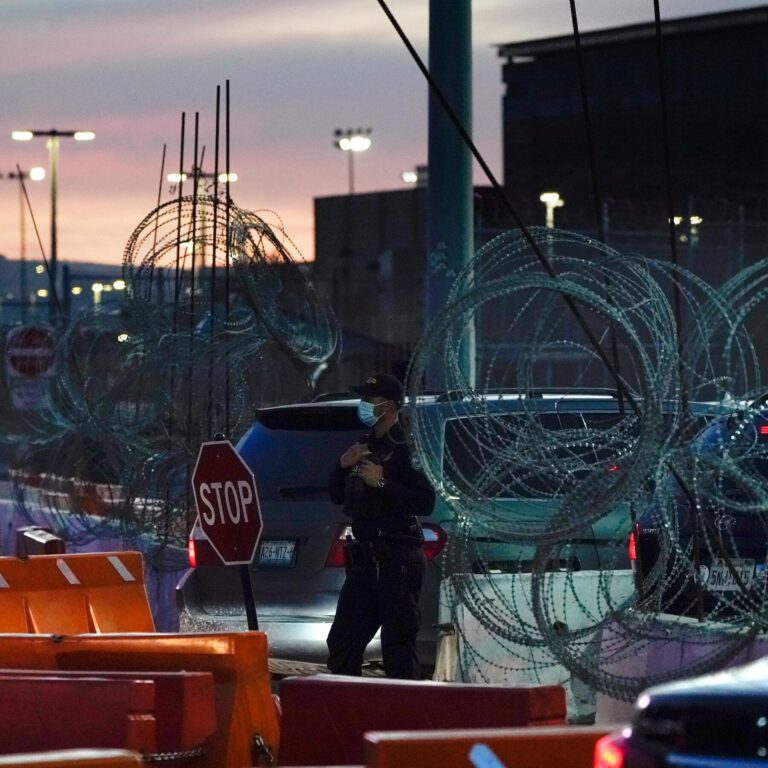A San Diego man has become the first individual in the United States to face criminal charges related to the smuggling of greenhouse gases, marking a significant development in the enforcement of environmental laws. Authorities allege that the suspect illegally imported large quantities of high-potency hydrofluorocarbons (HFCs), compounds known for their detrimental impact on the atmosphere and climate change. This unprecedented case underscores the growing attention law enforcement is paying to environmental crimes that contribute to global warming, highlighting the challenges in regulating and prosecuting the illicit trade of hazardous substances.
San Diego Man Faces Historic Charges in Greenhouse Gas Smuggling Case
In a groundbreaking legal development, authorities have charged a San Diego man with smuggling greenhouse gases, marking the first case of its kind in the United States. The indictment alleges the illegal import and distribution of hydrofluorocarbons (HFCs), potent greenhouse gases regulated under international climate agreements due to their significant impact on global warming. Officials emphasize the severity of these charges as they address the growing need to enforce environmental laws targeting the illicit trade of climate-damaging substances.
The case uncovers a complex network involved in circumventing customs regulations and exploiting loopholes to distribute banned chemicals. Authorities indicate the defendant engaged in:
- Smuggling of high-risk HFC products into the country
- False documentation to bypass regulatory inspections
- Supplying untraceable gas to commercial and industrial buyers
The environmental community and law enforcement agencies alike are closely watching how this prosecution will set precedents for combatting environmental crime on a national scale.
Legal and Environmental Implications of the First Federal Greenhouse Gas Smuggling Prosecution
The groundbreaking federal prosecution not only sets a precedent in environmental law but also signals a tightening regulatory landscape around greenhouse gas emissions and trafficking. By targeting illicit activities involving the smuggling of gases that contribute to climate change, authorities emphasize the intersection of environmental protection and legal accountability. This case challenges the traditional boundaries of smuggling laws by incorporating environmental crime, which could lead to increased scrutiny on businesses and individuals attempting to circumvent carbon regulations.
Key legal and environmental implications include:
- New Enforcement Avenues: The prosecution expands the toolkit for federal agencies to pursue climate-related infractions under smuggling statutes.
- Deterrence Effect: Potential offenders may reconsider actions that contribute to greenhouse gas proliferation, given harsher legal consequences.
- Policy Impact: This case could inspire legislative bodies to enhance laws surrounding carbon emissions and import/export control mechanisms.
| Aspect | Implication |
|---|---|
| Legal | Criminalization of greenhouse gas smuggling. |
| Environmental | Enhanced protection of climate regulations. |
| Economic | Potential disruption of black-market emissions trade. |
| Social | Increased public awareness of environmental crimes. |
Analyzing the Role of Regulatory Agencies in Combating Environmental Crimes
Regulatory agencies have intensified their vigilance in addressing the complex challenges posed by environmental crimes, highlighting their pivotal role in holding offenders accountable. This recent landmark case marks a turning point, showcasing the agencies’ expanded jurisdiction and heightened enforcement capabilities. Through collaboration across federal and state levels, these organizations ensure stringent oversight of activities impacting greenhouse gas emissions, thereby deterring illicit practices that exacerbate climate change.
Key functions of regulatory agencies in such prosecutions include:
- Monitoring and detecting illegal smuggling and trafficking of prohibited substances
- Implementing rigorous investigative protocols generating admissible evidence
- Coordinating with international bodies to curb cross-border environmental offenses
- Enforcing penalties that reinforce compliance and signal zero tolerance for violations
| Agency | Role | Impact |
|---|---|---|
| EPA (Environmental Protection Agency) | Enforcement & Monitoring | Legal actions against greenhouse gas violations |
| Homeland Security Investigations (HSI) | Smuggling Interdiction | Preventing illegal import/export activities |
| State Environmental Departments | Local Enforcement | Ensuring compliance with environmental statutes |
Recommendations for Strengthening Enforcement and Preventing Greenhouse Gas Trafficking
Robust enforcement mechanisms must be prioritized to deter illicit activities surrounding greenhouse gas trafficking. Authorities should escalate cooperation across federal and local agencies, enabling intelligence sharing and coordinated operations. Investment in advanced monitoring technologiesŌĆösuch as blockchain for supply chain transparency and satellite surveillanceŌĆöwill be essential in tracking illegal emissions and intercepting contraband before it reaches the market.
Key strategies for effective prevention include:
- Implementing stricter penalties for smuggling offenses to serve as a deterrent.
- Increasing funding for specialized task forces focused on environmental crimes.
- Enhancing public awareness campaigns about the risks and consequences of greenhouse gas trafficking.
- Establishing cross-border cooperation frameworks to manage global supply and demand intricacies.
| Recommendation | Expected Impact |
|---|---|
| Stricter Legal Frameworks | Increased deterrence and prosecution success rate |
| Advanced Tracking Technologies | Improved detection and evidence collection |
| Interagency Collaboration | More efficient resource utilization and intelligence sharing |
| Public Awareness Initiatives | Reduced demand fueling illegal markets |
Closing Remarks
The landmark case of the San Diego man charged with smuggling greenhouse gases marks a significant moment in the enforcement of environmental laws in the United States. As authorities continue to crack down on illegal activities that contribute to climate change, this prosecution signals a heightened commitment to holding individuals accountable for actions that threaten both the environment and public health. The outcome of this case could set important legal precedents, underscoring the growing urgency to address environmental crimes with the seriousness they demand.







